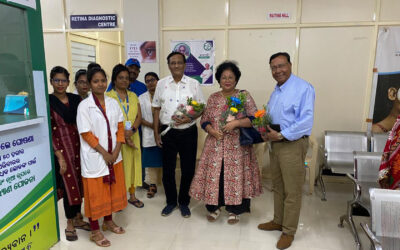The United Kingdom (UK) has been a leading stakeholder and generous investor in the Global Polio Eradication Initiative (GPEI), a public-private partnership which has reduced the incidence of polio by more than 99% and has brought the world to the brink of being polio-free.
The UK’s investment in polio eradication has played a critical role in protecting vulnerable countries from polio by building strong surveillance networks and training thousands of health workers to detect and respond quickly to outbreaks.
The infrastructure that the UK helped create has been critical to the detection and response to other infectious diseases including COVID-19. These existing, value-added resources serve as the backbone of global health security and support pandemic preparedness.
The UK’s investment in polio eradication has played a critical role in protecting vulnerable countries from polio by building strong surveillance networks and training thousands of health workers to detect and respond quickly to outbreaks.”
We recognise the extraordinary financial constraints that have resulted in the UK’s reduction of funding for the Global Polio Eradication Initiative this year. We look forward to the improved economic circumstances which will enable the UK’s restoration of development assistance funding to the level of 0.7% of Gross Domestic Product (GDP).
Every effort is being made to mitigate the risk that the dramatic reduction of the UK’s support for the GPEI poses to the polio eradication programme so that our decades of progress and hard work towards ending polio do not erode.
Now more than ever, ongoing support from governments and private-sector partners like Rotary is critical to sustain the gains to achieve eradication.
It is vital that we maintain commitment to finish the job; ensure a lasting polio-free world once eradication is achieved, and continue to reap the long-term, broader benefits of the polio infrastructure to enable effective responses to other public health emergencies such as for COVID-19.










